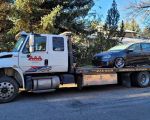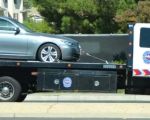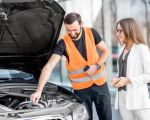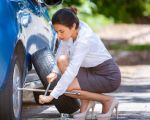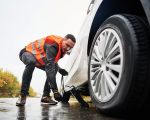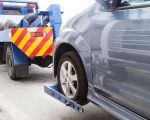- What to Do Immediately After a Car Breakdown
- Assessing the Situation and Safety First
- How to Troubleshoot Minor Breakdowns
- When to Call a Towing Service
- Preventing Future Breakdowns
What to Do Immediately After a Car Breakdown
Experiencing a car breakdown can be stressful and frustrating, especially if it happens in an inconvenient location or during a busy time. However, knowing how to handle the situation calmly and efficiently can prevent further issues and ensure your safety. Here are the first steps you should take if your car breaks down:
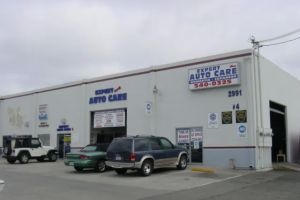
Expert Auto Care
2991 Grace Ln #4, Costa Mesa, CA 92626, USA
1. Stay Calm and Assess the Situation
The first thing you should do when your car breaks down is to stay calm. Panicking can make the situation worse, especially if you're stranded in an unfamiliar or dangerous area. Take a deep breath and assess your surroundings. Are you in a safe place, such as the shoulder of a highway or a parking lot? Is there enough space for you to exit the vehicle safely?
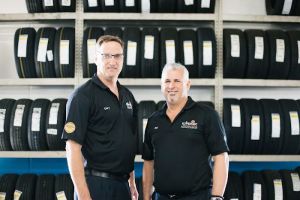
ExperTec Automotive
7680 Talbert Ave, Huntington Beach, CA 92648, USA
2. Turn on Your Hazard Lights
To alert other drivers that your car is experiencing issues, immediately turn on your hazard lights. This is crucial, especially if you're on a busy road or highway, as it will warn approaching vehicles to slow down and give you space.
3. Move to a Safe Location
If you're able to, carefully move your car to the side of the road or a nearby parking lot. If you can't move the car, or if it’s unsafe to do so, stay in the vehicle with your seatbelt on until help arrives. It's important to stay as far from traffic as possible to avoid accidents.
Assessing the Situation and Safety First
Once you're in a safe spot, it's important to assess the situation before taking further steps. Understanding the nature of the breakdown will help you decide whether you can fix the problem yourself or need professional assistance. Here’s how you can assess your car’s condition:
1. Check the Engine
If the engine has stopped, check for any obvious signs of issues, such as smoke, strange smells, or unusual sounds. Overheating can often cause a breakdown, so if the temperature gauge is high or there’s steam coming from under the hood, you may have an overheating engine. If it's safe to do so, let the engine cool down before attempting to open the hood.
2. Look for Obvious Issues
Look around your car for any obvious issues such as a flat tire, broken belts, or leaking fluids. If you have a flat tire, you may be able to change it yourself if you have the proper tools. However, if the issue is more serious, it's best to call for help.
3. Listen for Sounds
If your car makes unusual sounds when trying to start it, this could be a sign of an electrical or mechanical issue. Clicking sounds might indicate a dead battery, while grinding or whining noises might signal issues with the transmission or engine. These types of problems often require a professional mechanic to diagnose and repair.
How to Troubleshoot Minor Breakdowns
Not all car breakdowns require a tow truck or emergency services. Some minor issues can be solved with basic troubleshooting. Here are some common scenarios and how you can troubleshoot them:
1. Dead Battery
A dead battery is one of the most common causes of car breakdowns. If your car won't start, try jump-starting it using jumper cables and another vehicle. If your battery is the problem, consider replacing it as soon as possible to avoid future breakdowns.
2. Flat Tire
If you have a flat tire, you may be able to change it yourself if you have a spare tire, jack, and lug wrench. Make sure your car is on a stable surface, and follow the proper steps to remove the flat tire and install the spare. If you're unsure about how to change a tire, it may be best to call a professional for assistance.
3. Overheating
If your engine is overheating, the first thing you should do is turn off the air conditioning and turn on the heat. This can help redirect heat away from the engine. If the temperature gauge continues to rise, pull over safely and allow the engine to cool down before opening the hood. Check the coolant level and, if low, refill it with the appropriate coolant for your vehicle. If the problem persists, it’s best to call for roadside assistance or a towing service.
When to Call a Towing Service
While some breakdowns can be handled with minor troubleshooting, others require professional help. Here's when you should call a towing service:
1. If You Can't Fix the Issue Yourself
If the issue with your car is beyond your ability to repair on the spot, it’s time to call for help. This includes issues like engine failure, electrical problems, or transmission issues. A towing service can take your car to a nearby mechanic or repair shop where the problem can be diagnosed and fixed properly.
2. If You Are Stranded in an Unsafe Location
If you're stranded on the side of the road, especially in a hazardous or remote location, it’s best to call a towing service for your safety. Tow trucks can safely move your car and provide you with peace of mind until help arrives.
3. If You Need Immediate Roadside Assistance
Many towing services also offer roadside assistance, which can include services like fuel delivery, tire changes, lockout assistance, and battery jumps. If you need any of these services, contacting a towing company can be a fast and reliable option to get back on the road.
Preventing Future Breakdowns
While breakdowns are sometimes inevitable, there are several steps you can take to reduce the likelihood of one happening in the future:
1. Regular Maintenance
Regular maintenance, including oil changes, tire rotations, and brake inspections, can help keep your car running smoothly and prevent breakdowns. Follow your vehicle’s recommended service schedule to ensure all components are in good working condition.
2. Keep an Emergency Kit in Your Car
It's always a good idea to keep an emergency kit in your car. This should include basic tools, a spare tire, jumper cables, a flashlight, and first aid supplies. Having these items on hand can help you handle small issues until professional help arrives.
3. Pay Attention to Warning Signs
If your car is showing warning signs like strange noises, overheating, or dashboard alerts, address them promptly to prevent more serious issues. Ignoring minor problems can lead to larger, more expensive repairs down the road.
For reliable roadside assistance and towing services, visit Rescue & Towing to get the help you need when facing a car breakdown.













